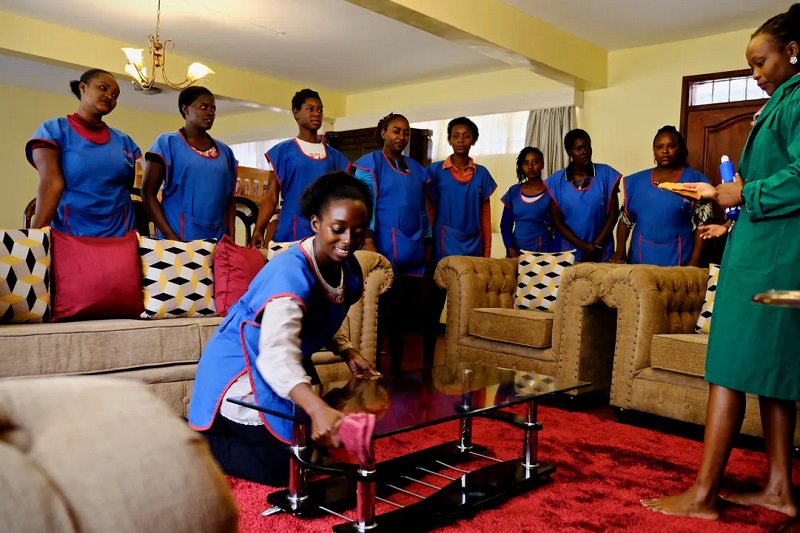
unaddressed mistreatment of kenyan domestic workers in gulf states raises concerns
Rights organisations have expressed grave worries concerning the alleged mistreatment of domestic workers in Gulf states, particularly Saudi Arabia. The Kenyan government’s initiatives to provide its residents with employment possibilities abroad have come under fire for the insufficient steps to address the abuse experienced by Kenyan domestic workers. Activist groups contend that quick action is required to save these employees from exploitation, contemporary slavery, and human trafficking. The issue, the legal action being taken against the Kenyan government, and the broader ramifications for Kenya’s global agenda for job creation are all examined in this article.
The Kenyan foreign ministry reports that during 2020 and 2021, at least 89 Kenyan workers—mostly domestic workers—died in Saudi Arabia. A legal assistance organisation called Kituo cha Sheria and another rights organisation called Hakijamii are aiding former domestic workers suing the Kenyan government. The workers accuse the government of failing to protect them sufficiently and to look into cases of abuse. Due to these judicial actions, the government will reply to these significant claims in the upcoming months.
Keep Reading
According to the Kenyan foreign ministry, at least 89 Kenyan workers—mostly domestic workers—died in Saudi Arabia between 2020 and 2021. Kituo cha Sheria, a legal aid charity, and Hakijamii, a different rights NGO, support former domestic workers suing the Kenyan government. The workers accuse the government of neglecting to protect them adequately and to investigate abuse instances. As a result of these legal measures, the government will respond to these critical claims in the following months.
Kenya has a high unemployment rate; hence President William Ruto’s administration has prioritised creating jobs both domestically and abroad. The effectiveness of the government’s initiatives to provide prospects for Kenyans with lower incomes depends on tackling the abuse of domestic workers abroad. More Kenyan employees will be able to find employment possibilities in a number of regions, including Europe, North America, and the Middle East, according to the president’s ambitions to sign new bilateral agreements.
The Kafala System and Worker Protection
The kafala system in Kenya, which gives businesses substantial control over employees’ immigration and employment status, is said to put workers at risk, according to rights organisations. Under this system, employees must obtain authorisation from their employers before quitting their positions, leaving the nation, or changing their employment status. Workers become vulnerable to exploitation and abuse due to this power dynamic. Workers who attempt to flee abusive settings may find themselves in the hidden economy, where brokers traffic them to work illegally in private residences.
Kenya’s Ministry of Labour and Social Protection investigated hundreds of employment agencies in response to growing worries, and 26 rogue firms were prohibited from transferring employees abroad. The rights organisations contend that these actions are not enough. The Kenyan government must actively safeguard workers, make sure their rights are protected, and punish those who mistreat and exploit them accountable. Workforce rights education and providing support networks for those in need should also be a priority.
The reported maltreatment of Kenyan domestic workers in Gulf countries, particularly Saudi Arabia, is a severe public concern. To address the abuse that Kenyan nationals are subjected to overseas, protect their rights, and guarantee their well-being, the Kenyan government must act immediately and in a decisive manner. It is critical to put worker protection first, update laws governing employment abroad, and improve assistance programmes for struggling employees. By doing this, Kenya can live up to its promise of enhancing opportunities for its people while protecting their human rights and dignity.









